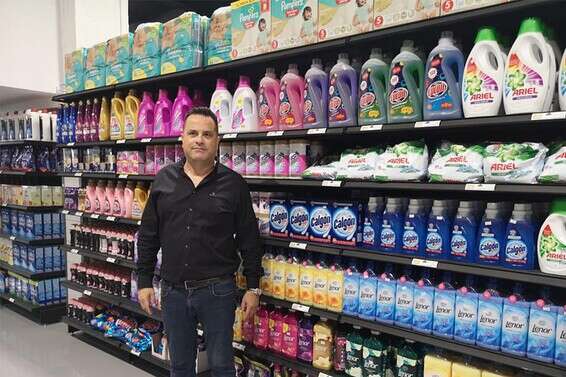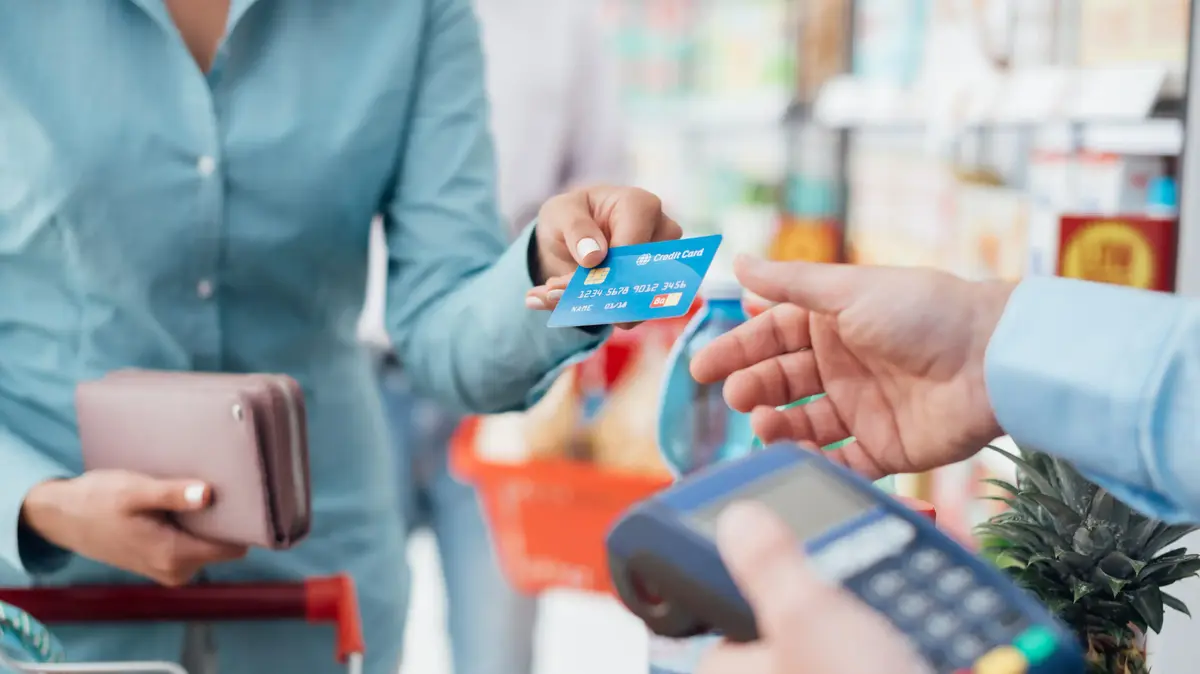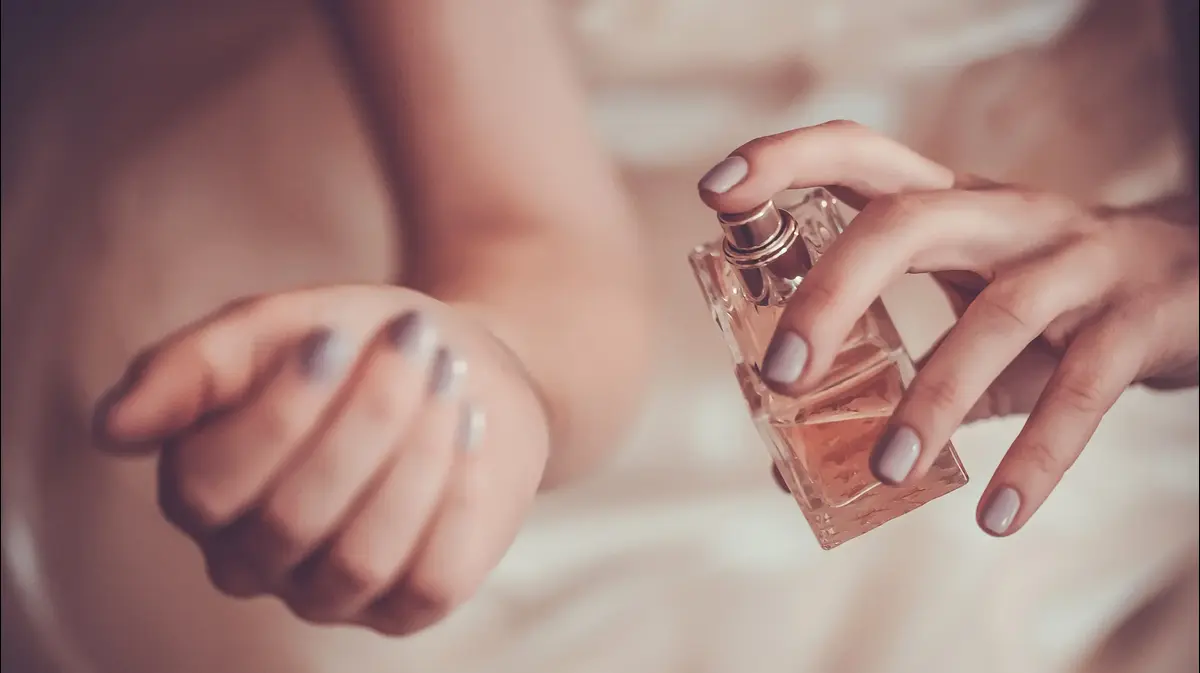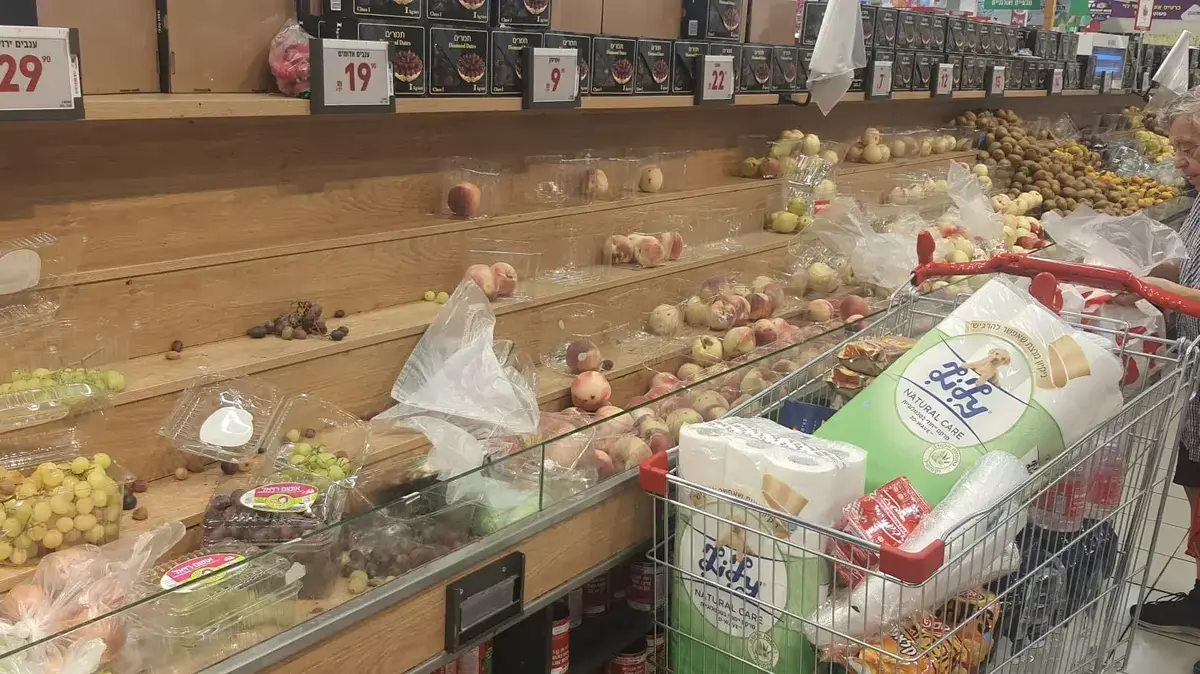Pasta in the Pharm chain, a luxury perfume in the food chain • The past year has accelerated the mix of uses of the largest supermarket shelves in Israel • Profitable?
Definitely • Commercially Fair?
When everyone removes the gloves, no one cares • A senior in the industry: "There is a cold war between Super-Pharm and Shufersal"
Flowering in nets during the corona.
Super Pharm
Photo:
Chen Galili
The products that are associatively identified with the pharma chains in Israel, and on the other hand with the food chains - have long been their exclusive domain.
The "invasion" of Super-Pharm and Be into food products and the "dressing" of Shufersal, for example, on toiletries and perfumes - created a tectonic consumer conflict.
The large supply of pharma chains did indeed justify itself in Corona, as many preferred to make a concentrated purchase near the house and bought alongside the medicines also tuna, pasta, coffee and chocolate.
Now that the pressure has dropped, the question remains where the differentiation is and who needs it.
Is the "kitchen" of the products important for the characterization of each network, and does it move customers at all.
Overlapping products
"There is no doubt that in recent years, 70% of the products sold in the retail chains overlap with Super-Pharm," nods Danny Luzon, deputy CEO of Super-Pharm, which controls 85% of the market. "Once the cleaning materials sector was the realm of food chains, today customers know they You will find them with us as well.
Many of the developments sold in the field have been launched at Super-Pharm, such as Lanor's suppositories. "
Corona added, he said, almost 50 of 190 new items launched this year - in the food category alone." In terms of detergents, beyond innovation, they used to be food chains. Much more than ours.
About four years ago our private label was born in the field of cleaning products called 'Sunday', and it does a crazy job.
These are quality products from suppliers from Israel and the world, and it has taken a nice market share in the department.
Super-Pharm has doubled its market share in detergents in the last three years. "
But Luzon and his Super-Pharm executives also know that getting to the top can lead to complacency.
Therefore, especially now when demand is strong, they have upgraded a little less than 40 branches and turned them into the laundered name "Concept Stores".
The goal is transparent: visibility and shopping experience.
The rationale: It will take time for the duty free to return, and on the other hand the competing Be chain is finally established thanks to the back of Shufersal.
Last week, the chain inaugurated the Super-Pharm Gallery in Rishon Lezion - a two-story branch, the first of which is all cosmetics.
Due to its size in the market, the chain closes exclusivity on products that other chains cannot sell - thus differentiating itself in an act that some would question its fairness.
Either way, Luzon boasts that "there is no such store, and I can say that as one who has seen many places in the world. We got 'inspired' by 2-3 points in the world but in terms of the combination of pharmacy and cosmetics - there is no such thing."
Expected: 5 more such stores in the coming years.
Why now?
"Because in my estimation, in the next two or three years, the level of flights abroad will be less.
It is true that there was an increase in online purchases - an increase that also happened in our country - but even if the Internet reaches 15%, about 85% of sales are still made in the physical space.
People are tired of the banal.
They want to see other things and have an experience.
We changed the music and the flooring.
We see the crazy reactions.
We are fighting the retail chains.
"
Be
such a mix"
at Be, which started out lame and causing losses to Shufersal, the boundaries between food and pharm are even more blurred, at least on the face of it. But if you ask Be CEO Uri Wertman, he also competes with Shufersal Who created it.
"We are part of Shufersal and therefore we enjoy the trading and variety and quality capabilities of the largest chain in Israel, and on the other hand we are the Pharm chain and we compete in the food chains - also in Shufersal," he explains.
"35% of our variety also exists in food chains. The corona has created a change in consumer behavior. People who leave home try to concentrate their shopping because they do not want to be exposed. This is a trend from last March and it still happens today. Accordingly, the shopping basket is growing. Which is the world of food, cleaning and non-food. We have non-food products such as bedding, pots and all kinds of products around the house. We have allocated more space for these products and we see that the consumer likes to buy it. This is a trend that exists in the world. "The name of the pharm chain allows you to even buy ready-made food, like in the convenience store. In Israel, this does not happen because of the regulation. We explicitly sell more dry food. We have dry food from Shufersal's private label, such as pasta and rice."
In his view, the new nature of consumption will continue.
"In the end we provide a response to consumer demand. It is impossible to do on the Corona 'Control Alt Delete' and go back."
Another pharma owned by a food chain is Good Pharm, which came under the control of Rami Levy about three years ago.
Unlike the previous two, Good Pharm does not have a pharmacy, nor in future plans.
However, the chain reported the establishment of a pharmacy with Togder for the sale of medical cannabis products.
Adam Friedler, CEO of Good Pharm: “We also have towels and sheets and there are writers who sell toys.
Such a mix is created.
The reason was not to eliminate the business rivals, but to concentrate the customers on the purchase at once.
Even today we have a variety of towels, bedding and a few toys and food.
We sell everything from tuna and pasta to snacks like Beasley and Bamba. "
Friedler, as in previous articles in this supplement, differentiates himself from the greats in the industry and reveals a tap from the competition patterns.
"There is a cold war between Super-Pharm and Shufersal - Shufersal in food and Super-Pharm in Pharm. When Shufersal puts on a perfume on sale, Super-Pharm puts on a sale of tuna and ketchup to give them back. They are trying to fight on their land."
Where do you think more detergents are bought - at a food chain or at a pharm?
"I think in the food chains. However, in the laundry there may be in the pharma chains. The reason is that there are more women in the pharma chains than in the food chains. With us - 75% of the customers are women. I think it is like that in all the pharma chains."
Ask Salem, CEO of the Medi-Link Pharm website, has no intention of mixing up the product mix. "We are a website that specializes in Pharm.
Asus, which is in the field of fashion, does not disperse to other places.
I estimate that simple things like toiletries and diapers people will buy in food chains, but things related to complex decisions they will want to buy on a specialized site.
I do not see the leakage anywhere. "The
estimates made by the economists of the business information company COFACE BDI show that the revenues of the pharma chains amounted to a huge amount of NIS 6.675 billion by 2020. The three leading chains in the industry are Super-Pharm with an estimated share of about 85% of the market and 72% of all pharma branches throughout the country. BE is part of the Shufersal Group, which holds about 12%, while Good Pharm has only 3% of the market. The
number of branches of the pharma chains in Israel is currently 370.
Tehila Yanai, co-CEO of the company The business information COFACE BDI confirms that in addition to the competition between the three pharma chains, the chains in the industry are dealing with stores operating in tangent fields.
"I have no promotions"
It is no secret that the phrase "parallel imports" is stressing the big players in the market.
In any market, but mainly in food and cosmetics.
One of them, which is based almost on parallel imports, is the new pharmacy chain that does not include pharmacies: Big Brands.
This is a chain of basic consumer products for hygiene, cleaning and laundry, along with perfumes and alcohol at "market-breaking" prices, according to its founders and managers.
The patent: parallel imports of 95% of the products.
The company was founded by Michael Pinto and Vichy Diamant six years ago.
They entered the market with Ariel and Tide brands in parallel imports, with lower prices.
Over the years, the two expanded their activities and began to bring in more sought-after brands, including Colgate, Airwick, Gillette, Finish, Lanore and Ariel.
The success led to a sales turnover of NIS 100 million in the group, and recently the company launched its first store on Tuval Street in Ramat Gan, offering about 1,800 products, when it bought six more branches in 2021.
"We are the only chain that also imports the products and sells them. I am 20% cheaper than the market and I do not have specials. All year round it is the same price," Pinto declares.
"We Lost on Masks"
Luzon defines the past year as a "roller coaster" in terms of Super-Pharm.
"We sold millions of masks along with a sharp drop in makeup sales. This is a loss of 35% lip makeup sales and 27% eye makeup sales by 2020. On the other hand, in cosmetics there was an increase in perfume sales because the duty free was closed. The biggest product in detergents was "Baking paper from 'Sunday' grew by thousands of percent. Due to the closure of the hairdressers, there was increased home hair coloring and there was a shortage of brushes and bowls for coloring, but in the end we achieved that."















